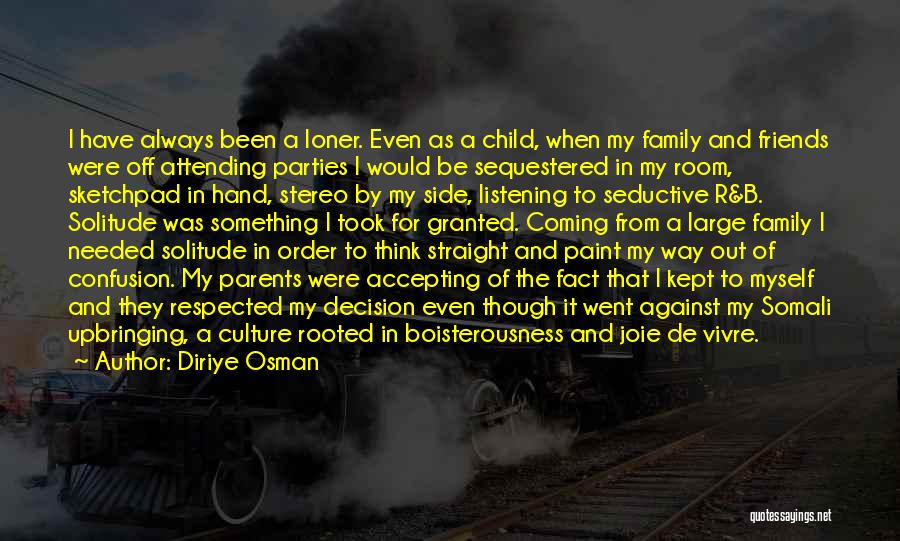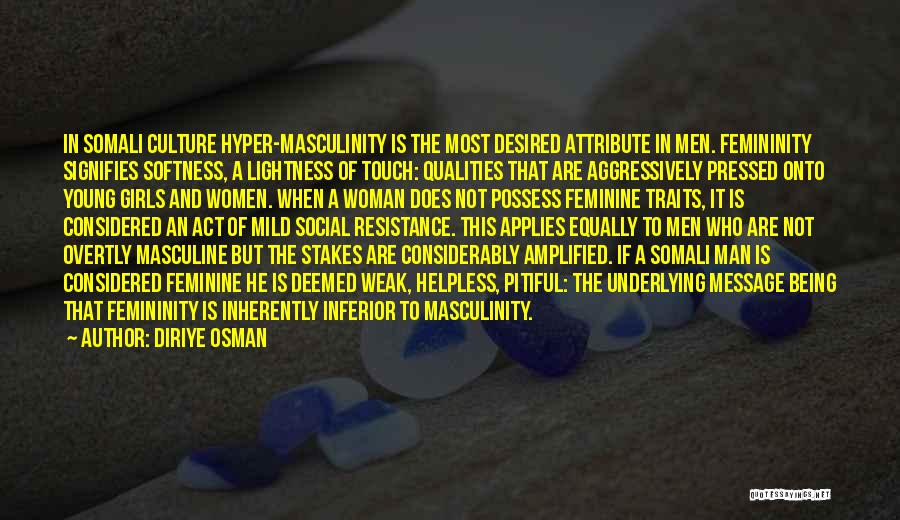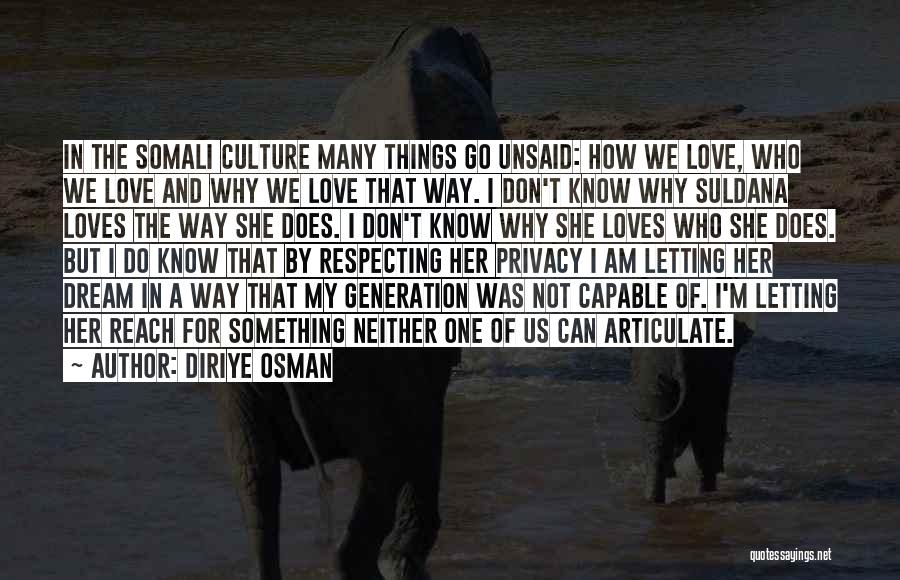Quotes & Sayings About Somali Culture
Enjoy reading and share 4 famous quotes about Somali Culture with everyone.
Top Somali Culture Quotes

Everyone seems to agree that it is Minnesotans' responsibility to assimilate to Somali culture, not the other way around.11 The Catholic University of St. Thomas has installed Islamic prayer rooms and footbaths in order to demonstrate, according to Dean of Students Karen Lange, that the school is "diverse." Minneapolis's mayor, Betsy Hodges, has shown up wearing a full hijab to meetings with Somalis. (In fairness, it was "Forbid Your Daughter to Work Outside the Home" Day.) — Ann Coulter

I have always been a loner. Even as a child, when my family and friends were off attending parties I would be sequestered in my room, sketchpad in hand, stereo by my side, listening to seductive R&B. Solitude was something I took for granted. Coming from a large family I needed solitude in order to think straight and paint my way out of confusion. My parents were accepting of the fact that I kept to myself and they respected my decision even though it went against my Somali upbringing, a culture rooted in boisterousness and joie de vivre. — Diriye Osman

In Somali culture hyper-masculinity is the most desired attribute in men. Femininity signifies softness, a lightness of touch: qualities that are aggressively pressed onto young girls and women. When a woman does not possess feminine traits, it is considered an act of mild social resistance. This applies equally to men who are not overtly masculine but the stakes are considerably amplified. If a Somali man is considered feminine he is deemed weak, helpless, pitiful: The underlying message being that femininity is inherently inferior to masculinity. — Diriye Osman

In the Somali culture many things go unsaid: how we love, who we love and why we love that way. I don't know why Suldana loves the way she does. I don't know why she loves who she does. But I do know that by respecting her privacy I am letting her dream in a way that my generation was not capable of. I'm letting her reach for something neither one of us can articulate. — Diriye Osman





